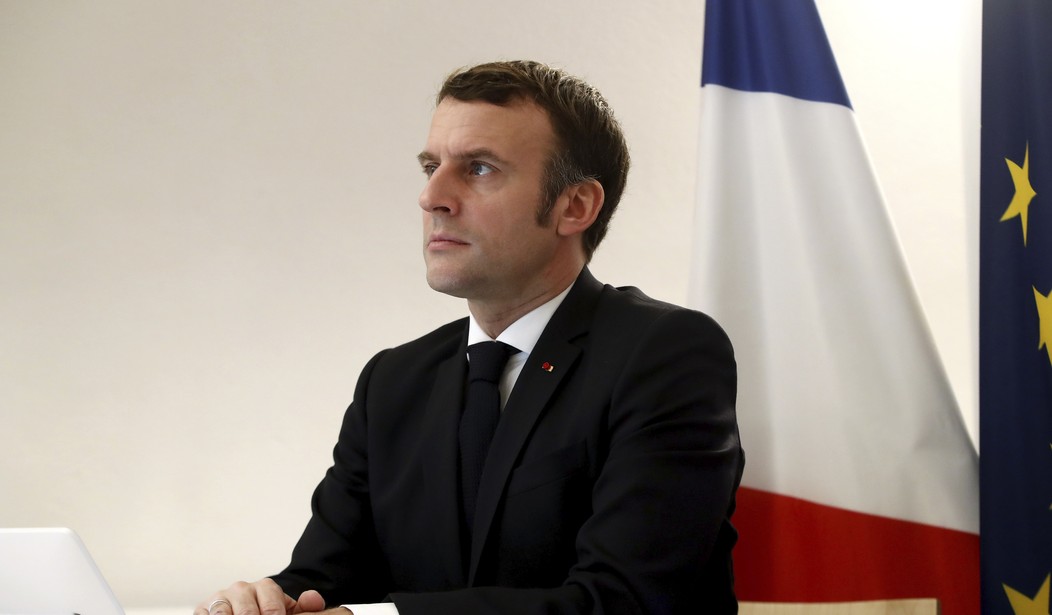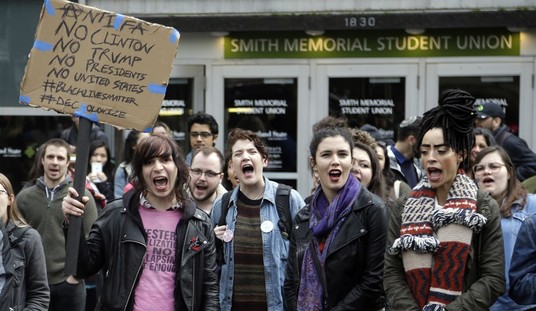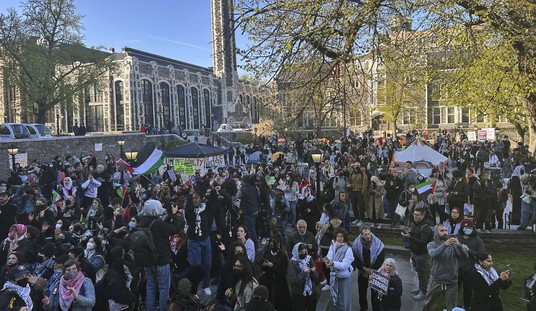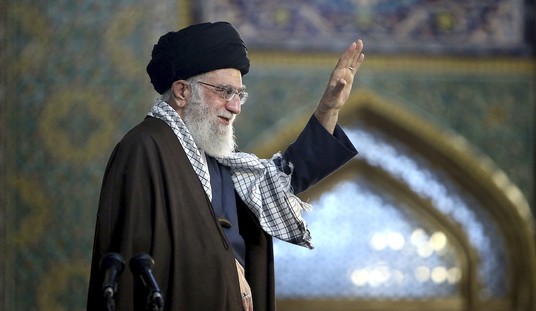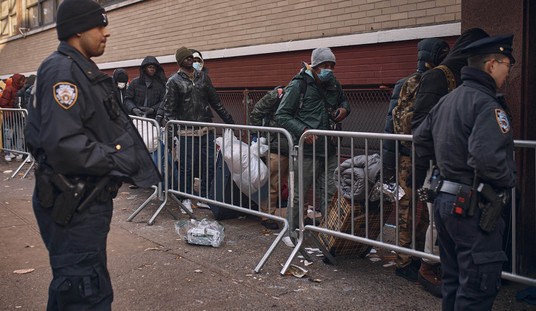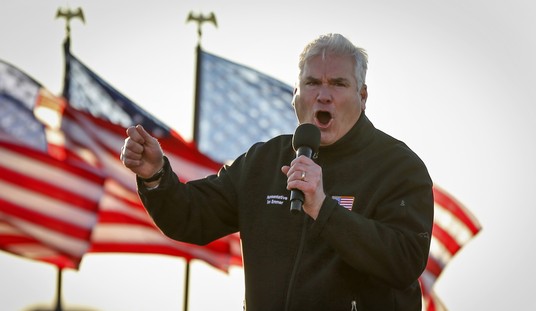On Monday, French President Emmanuel Macron is heading to Moscow for some talks with Vladimir Putin. The subject of the discussion will obviously be Ukraine and the ongoing tensions at the border between the two nations. Unlike the pronouncements coming out of Washington about Russia’s “false flag operation” plans and an invasion coming in the next couple of weeks, Macron is taking a decidedly more upbeat approach, at least in public. He told French media this weekend that he fully expects to secure some significant de-escalation measures with Moscow and ensure that a full-blown war won’t break out. But he’s also warning his NATO allies that some “concessions” may need to be made to assure Putin that Russia’s security interests are being recognized and respected. (Politico)
French President Emmanuel Macron is optimistic he can secure a de-escalation over Ukraine when he travels to Moscow to meet his Russian counterpart Vladimir Putin on Monday, but hinted that Western countries could have to make concessions to the Kremlin.
His bullish prognosis of a diplomatic compromise will trigger alarm bells among those who advocate a more hawkish line on Russia, particularly in Central and Eastern European capitals that fear Russian aggression. In an interview with the weekly Journal du Dimanche before his departure, Macron not only downplayed fears that Putin’s real strategic ambition was to occupy Ukraine but also extended an olive branch to Russia by saying he understood Moscow’s need to defend its security interests.
“The intensity of the dialogue we have had with Russia and this visit to Moscow are likely to prevent [a military operation] from happening. Then we will discuss the terms of de-escalation,” he told the JDD. “I have always been in a deep dialogue with President Putin and our responsibility is to build historic solutions.”
Macron’s analysis of the situation is at odds with those of many other western powers. He contends that Putin never had any intention of invading Ukraine in the first place. In his view, this was all a show of force designed to bring NATO to the table and take Moscow’s security concerns seriously. He said that what Russia is seeking to do is to “clarify the rules of cohabitation with NATO and the EU.”
I’ll confess that I’ve gone back and forth on this question while covering the ongoing saga on the Ukrainian border here. Could this really all have been some drama that Putin cooked up to pry concessions out of the west? On the one hand, you can’t simply write off the possibility of Russia annexing someone else’s territory, by force if required. Look no further than the Crimean Peninsula for proof. But at the same time, not only taking but more importantly holding the entirely of Ukraine would be a huge pain for Russia and they could face a protracted and well-armed insurgency. Also, the move would doubtless be met with universal condemnation from NATO members and the rest of the EU. Harsh sanctions would certainly follow, and while Putin claims not to pay such threats any heed, he’d probably rather avoid them if possible.
So let’s just say for a moment that Macron could be right and this was a dramatic bit of theater on Putin’s part to force the west to the negotiating table. The problem is that Macron isn’t saying what sort of compromises may need to be offered. He’s talking about “building mechanisms and reciprocal gestures of trust” between Russia and NATO. But what would that look like? Denying (or removing) NATO membership for any countries that share a border with Russia seems like a non-starter at this point and far too big of a concession to ask. But is there some middle ground?
Perhaps the NATO members along Russia’s border could agree to move any NATO troops and missile defense systems back a bit further away from the border? That’s still a lot to ask, but it’s less than demanding that NATO never accept any new members to the east of the current boundaries.
Macron isn’t alone in wanting to make a deal. Germany is staying completely on the sidelines in this because they’re petrified of the idea of losing their energy supplies from Russia. Other nations sharing a border with Russia also have more skin in the game and hope to avoid a conflict. I have no idea if Macron can pull this off, but I’ll give him credit for at least trying.

